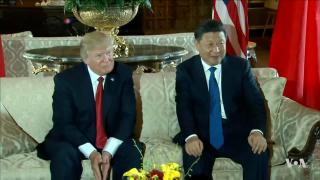June 5, 2025 (EIRNS)—How will Russia respond to the recent, large-scale attacks on its strategic forces and civilian infrastructure? On this hangs the immediate future. Will Russia retreat and draw a new red line? Will it launch a massive retaliation, potentially including strikes on military targets located outside the territory of Ukraine but key to attacks on Russia?
We are approaching a point of no return, in which nuclear Armageddon could end human civilization as we know it, ushering in a dark age of centuries.
How will NATO respond to its changed stature, in a world where it is no longer the supreme hegemon? On this hangs the Earth’s next fifty years.
The attack on Russian strategic bombers, parked outside in compliance with the New START treaty, has effectively terminated that arms control treaty, following Russia’s suspension of the treaty in February 2023. (Since that time, Russia has continued to abide by certain aspects of the treaty.)
What will become of Russia’s policy of a buffer zone in eastern Ukraine? If long-range attacks deep within Russia are launched by Ukraine—or by British and American networks operating inside Russia—then the necessary buffer zone would include all of NATO: an impossibility that can only be resolved by addressing the conflict’s root causes.
Absent that resolution—or a change in course—the risk of nuclear war will continue to mount, until it becomes unstoppable.
A potentially significant step towards achieving such a shift occurred Thursday, June 5, when Presidents Trump and Xi spoke by phone, reaffirming their commitment to working out mutually beneficial trading arrangements and extending mutual offers for state visits. Follow-up meetings of relevant economic and trade advisors are in the works.
As a reminder of the limitless potential of human creativity, a breakthrough development in personalized genetic medicine was achieved, by altering an infant’s liver cells in vivo to repair a mutation that deprived him of a crucial enzyme. This has implications for the treatment of cancer, HIV/AIDS, and the millions of people with individual genetic mutations.
Breakthroughs in biology, breakthroughs in nuclear fusion, breakthroughs in space—these should be the topics of daily discussion, not whether we will survive the next week! The May 24-25 Schiller Institute conference points the way to achieving such a future.
While the world waits to see how Putin will respond, the choice of the future lies largely in the hands of the people of NATO countries. History demands that they chart a new course.
Join the Friday meeting of the International Peace Coalition in charting that new course.






